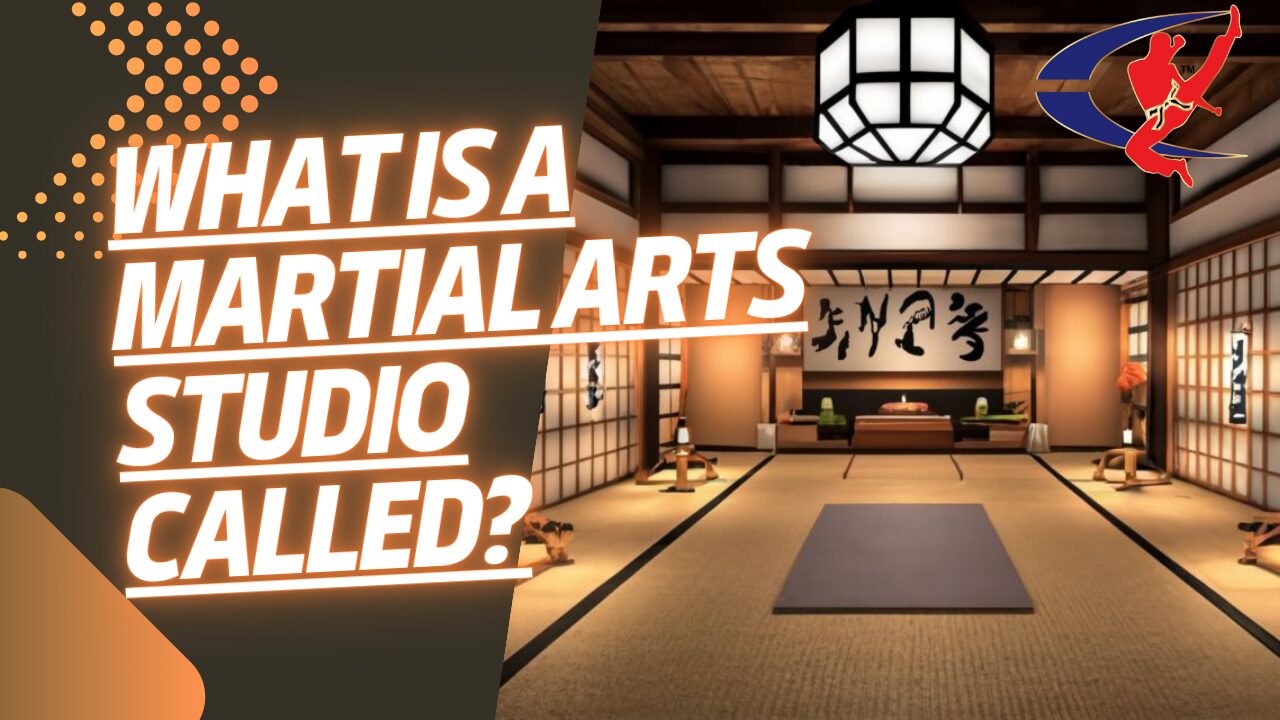A martial arts studio is often known as a dojo, gym, training center, martial arts school, academy, or combat sports center. These establishments offer tailored training environments catering to diverse preferences and goals. Each venue has unique characteristics and benefits suited to individuals seeking physical fitness, mental discipline, and self-defense skills. Understanding the distinctions between these options can help in selecting the most suitable setting for one’s martial arts journey.
Key Takeaways
- Dojo: Traditional Japanese training hall with strict etiquette and mentorship.
- Gym: Modern fitness center promoting an active lifestyle and community engagement.
- Training Center: State-of-the-art facility with certified instructors and diverse class options.
- Martial Arts School: Worldwide establishment focusing on discipline, respect, and self-defense skills.
- Academy: Specialized institution offering tailored programs, belt ranking, and competition opportunities.
Dojos
Dojos, traditional Japanese training halls for martial arts, play a fundamental role in the practice and development of martial arts skills. These spaces are steeped in tradition and uphold strict dojo etiquette to instill discipline and respect in practitioners. Within the dojo, students are expected to adhere to specific codes of conduct, including bowing upon entering and leaving the training area, showing respect to instructors and fellow students, and maintaining a high level of focus and concentration during training sessions.
Traditional training in the dojo often involves rigorous physical conditioning, repetitive practice of techniques, and the cultivation of mental fortitude. The structured environment of the dojo helps students hone their skills through consistent practice and guidance from experienced instructors. Additionally, the sensei, or teacher, plays a crucial role in mentoring students and imparting not only martial arts techniques but also valuable life lessons such as perseverance, humility, and self-discipline.
Gyms
Gyms, as fitness establishments equipped for physical training and exercise, serve as modern venues for individuals to improve their physical health and well-being. These facilities provide a range of equipment and resources tailored to different workout needs, making them versatile spaces for achieving fitness goals. Gyms offer a variety of workout spaces, including cardio areas with treadmills and elliptical machines, strength training sections with free weights and machines, as well as group fitness studios for classes like yoga, Zumba, and spinning. Many gyms also have amenities such as showers, lockers, and sometimes even pools or saunas for post-workout relaxation.
Fitness facilities like gyms are designed to accommodate individuals of all fitness levels, from beginners to seasoned athletes, by offering a supportive environment for exercise and physical improvement. The structured setup of gyms encourages regular physical activity, promoting overall health and wellness through consistent workout routines. Overall, gyms play a vital role in promoting an active lifestyle and fostering community engagement through shared fitness experiences.
Training Centers
Training centers play a crucial role in the development of martial arts practitioners.
The amenities offered by the studio, the qualifications of the instructors, and the variety of class schedules are key considerations when choosing a training center.
Understanding these points can help individuals make informed decisions about where to train and refine their martial arts skills.
Studio Amenities Overview
Amidst the realm of martial arts studio amenities, the provision of state-of-the-art training centers stands as an essential element for fostering growth and skill development among practitioners.
A well-equipped training center is characterized by meticulous equipment selection tailored to various martial arts disciplines, ensuring practitioners have access to tools that enhance their training experience.
Moreover, meticulous facility maintenance is paramount to uphold a safe and conducive training environment. Regular upkeep not only extends the lifespan of equipment but also reflects a commitment to professionalism and quality in the studio.
Instructor Qualifications Check
Ensuring the qualifications of instructors at a martial arts training center is fundamental to maintaining the standard of instruction and fostering a conducive learning environment for practitioners. Prospective students should inquire about instructor certifications, such as black belt levels or specific teaching credentials, to ensure that the instructors have undergone proper training and evaluation.
Teaching experience is also a crucial factor to consider when evaluating the qualifications of martial arts instructors. Experienced instructors often bring a depth of knowledge and a refined teaching style that can greatly benefit students.
Class Schedule Options
To optimize their training experience, individuals seeking martial arts instruction should carefully review the diverse class schedule options offered by training centers. Class schedules typically include a mix of beginner, intermediate, and advanced classes to cater to students at different skill levels. Training centers often incorporate belt ranking systems to track progress and provide goals for students to work towards.
Sparring techniques are usually taught in specific classes to enhance practical combat skills. Additionally, many centers offer meditation practices to improve focus and mental clarity. Some training centers also provide specialized classes focusing on specific martial arts styles or self-defense techniques, allowing students to customize their training based on individual interests and goals.
Martial Arts Schools
A diverse array of martial arts schools exist worldwide, each offering unique training methods and philosophies. These establishments are commonly referred to as martial arts academies, where individuals of all ages can learn various martial arts disciplines under the guidance of experienced instructors.
Instructor certifications play a crucial role in the credibility and quality of martial arts schools. Certifications ensure that instructors have undergone rigorous training themselves, possess the necessary skills to teach students effectively, and adhere to the ethical standards of the martial arts community.
Martial arts schools vary in their focus, with some specializing in traditional martial arts such as Karate, Taekwondo, or Kung Fu, while others may emphasize modern disciplines like Brazilian Jiu-Jitsu, Muay Thai, or mixed martial arts (MMA). Regardless of the specific style, martial arts schools aim to foster discipline, respect, physical fitness, and self-defense skills among their students. Choosing a reputable martial arts academy with certified instructors is essential for those seeking to embark on a martial arts journey.
Academies
Academies within the realm of martial arts encompass a variety of styles and approaches. Understanding the types of academies available, the training programs they offer, and how to select the right academy for one’s goals are crucial considerations.
Exploring the intricacies of academy options can greatly impact a practitioner’s martial arts journey.
Types of Academies
Various martial arts studios specialize in specific disciplines, catering to different training needs and goals. Some academies focus on belt ranking systems and offer competition opportunities for students looking to test their skills in a competitive setting.
Others emphasize meditation practices and teach self-defense techniques for personal protection and inner balance. The diversity of academies allows individuals to choose a studio that aligns with their interests and objectives within the realm of martial arts.
Whether a student seeks to advance through colored belts, participate in tournaments, cultivate mindfulness through meditation, or learn practical self-defense strategies, there is likely an academy tailored to meet their specific preferences and aspirations.
Academy Training Programs
Training programs at martial arts academies are meticulously designed to cater to the specific needs and goals of students, ensuring a structured and effective learning experience. These programs often incorporate a belt ranking system that allows students to track their progress and set achievable goals.
In addition to mastering various striking, blocking, and kicking techniques, students are also trained in sparring techniques to enhance their practical combat skills. The curriculum is carefully crafted to balance physical conditioning, mental discipline, and self-defense training.
Through rigorous practice and guidance from experienced instructors, students develop not only their physical abilities but also mental fortitude and character. Martial arts academies provide a comprehensive and well-rounded training experience for individuals seeking personal growth and self-improvement.
Choosing an Academy
When selecting a martial arts academy, it is essential to consider factors such as instructor experience, class schedules, and facility amenities to ensure a productive learning environment.
Finding the right academy involves assessing the academy benefits that align with your training goals. Look for academies that offer a diverse range of classes to cater to different skill levels and interests. Experienced instructors can provide valuable guidance and mentorship, enhancing your learning experience.
Additionally, a well-maintained facility with adequate equipment and a clean training environment is crucial for safety and comfort during practice. By carefully evaluating these aspects, you can choose an academy that not only meets your needs but also supports your martial arts journey effectively.
Training Dojos
What distinguishes exceptional dojos from the rest in the realm of martial arts training? Exceptional dojos strike a balance between traditional techniques and modern training methods. They honor the roots of martial arts by preserving traditional techniques that have been passed down through generations. These techniques often emphasize discipline, respect, and focus, key principles in martial arts philosophy.
In addition to traditional practices, exceptional dojos incorporate modern training techniques to enhance the overall learning experience. This may include the use of technology for analysis and feedback, specialized equipment for strength and conditioning, and innovative teaching methods to cater to different learning styles. By blending the old with the new, students in these dojos benefit from a well-rounded training program that prepares them for both the physical and mental challenges of martial arts practice.
Combat Sports Centers
Combat Sports Centers serve as hubs for competitive martial arts training and development, fostering a culture of dedication and skill refinement amongst practitioners. These centers provide a dedicated space for individuals to hone their combat techniques and self-defense strategies under the guidance of experienced instructors.
In Combat Sports Centers, students engage in rigorous training sessions that focus on various martial arts disciplines such as Brazilian Jiu-Jitsu, Muay Thai, boxing, and judo. Through structured classes and sparring sessions, practitioners have the opportunity to enhance their striking, grappling, and defensive skills in a controlled environment.
Moreover, Combat Sports Centers often host competitive events and tournaments, allowing students to test their abilities against others in a challenging yet supportive setting. This competitive aspect not only helps individuals gauge their progress but also fosters a sense of camaraderie and sportsmanship within the martial arts community.
Frequently Asked Questions
What Types of Martial Arts Styles Are Typically Taught at a Martial Arts Studio?
Martial arts studios commonly teach a variety of styles including Karate, Taekwondo, Jiu-Jitsu, and Kung Fu. These programs often incorporate belt ranking systems to mark progress and focus on self-defense techniques to enhance practical skills and discipline.
How Much Does It Cost to Enroll in Classes at a Martial Arts Studio?
When considering enrolling in classes at a martial arts studio, it is essential to inquire about the class schedule and pricing structure. Additionally, understanding any uniform requirements and necessary equipment can provide a comprehensive overview of associated costs.
Are There Age Restrictions for Students at Martial Arts Studios?
Age restrictions for students at martial arts studios vary. Some may have minimum age requirements, typically around 4-6 years old. Class schedules are usually structured to cater to different age groups. Uniform requirements are common for all students.
Do Martial Arts Studios Offer Private Lessons in Addition to Group Classes?
Martial arts studios often offer private lessons in addition to group classes. Private lessons provide customized training and individualized attention, allowing students to progress at their own pace. Group classes offer camaraderie but may lack personalized instruction.
Are There Opportunities for Students to Compete in Tournaments or Competitions Through a Martial Arts Studio?
Martial arts studios offer students valuable opportunities for tournament participation, enhancing their training with real-world application. Skill development is honed through competition opportunities, fostering growth, discipline, and a deeper understanding of martial arts principles.
Conclusion
In conclusion, a martial arts studio can be referred to by various names such as dojos, gyms, training centers, martial arts schools, academies, training dojos, and combat sports centers. Each name carries its own unique connotations and traditions within the world of martial arts.
Regardless of the specific title used, these establishments serve as spaces for individuals to train, learn, and practice various martial arts disciplines.

